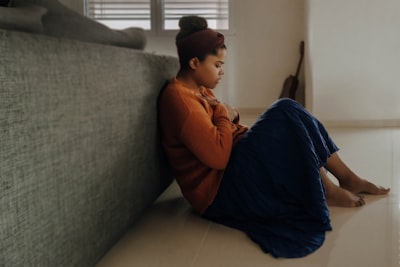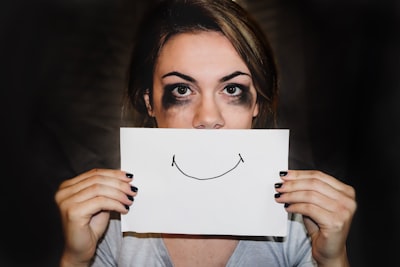Effective Anxiety Treatment Strategies

Key Highlights
- Anxiety disorders are the most common mental health challenge in the United States, impacting millions of individuals each year.
- Characterized by persistent worry and fear, anxiety disorders can significantly hinder daily activities, relationships, and overall well-being.
- This blog post will explore various facets of anxiety disorders, including their impact, symptoms, causes, and evidence-based treatment options.
- Readers will gain insights into how lifestyle modifications such as diet and exercise can play a crucial role in anxiety management.
- Furthermore, we will discuss different professional treatments available, self-help strategies, and the importance of seeking professional guidance.
Introduction
Dealing with anxiety symptoms can be tough. It’s important to know you’re not alone in this. Anxiety affects millions and is a common mental health issue. This blog post will introduce different parts of anxiety and provide coping and support strategies to help manage anxious feelings. It will cover its effects, symptoms, and many effective treatment options that can help you on your journey to recovery and feeling good.
Understanding Anxiety and Its Impact

Anxiety is common in today’s world. Everyone feels anxious now and then, which is a normal response to stress. However, anxiety disorders last longer and can really hamper daily life. For example, people may experience constant worry from generalized anxiety disorder (GAD) or sudden fear during a panic attack. These problems can make it hard for someone to live well. Understanding the symptoms of GAD is crucial in effectively treating and managing anxiety.
Having an anxiety disorder can affect many parts of a person’s life. It may make it difficult to do well in school or at work. It can also put a strain on personal relationships and make life feel less enjoyable. Understanding how deep the impact of anxiety can be shows why it’s important to get help quickly and in the right way with the right treatment.
Defining Anxiety in the Modern Context
In today’s busy world, many people use the word “anxiety” to describe everyday stress. However, it’s important to tell the difference between these short-term feelings and the serious issue of anxiety disorders. An anxiety disorder means having too much worry and fear that makes it hard for someone to manage daily tasks, such as separation anxiety disorder.
Anxiety disorders are more than just feeling nervous. People with these disorders often feel intense fear, even during regular social situations. This fear can be so strong that people start to avoid certain places or activities. This can affect work, school, relationships, and overall health.
It’s important to know when everyday anxiety turns into an anxiety disorder. If your fear and worry last a long time and disrupt your daily life, it’s crucial to talk to a health professional. They can give you the guidance and support you need.
The Prevalence of Anxiety Disorders in the United States

Anxiety disorders stand as the most common mental health condition in the United States, impacting millions of adults each year. According to the National Institute of Mental Health (NIMH), an estimated 31.1% of U.S. adults experience an anxiety disorder at some point in their lives.
The Diagnostic and Statistical Manual of Mental Disorders (DSM-5), widely recognized as the authoritative guide for diagnosing mental health conditions, outlines several types of anxiety disorders. These include Generalized Anxiety Disorder (GAD), Panic Disorder, Social Anxiety Disorder, and various phobia-related disorders, each with its specific set of diagnostic criteria.
| Anxiety Disorder | Description |
| Generalized Anxiety Disorder | Excessive worry and anxiety about various aspects of life, lasting for at least 6 months. |
| Panic Disorder | Characterized by recurrent and unexpected panic attacks, intense fear, and physical symptoms. |
| Social Anxiety Disorder | Intense fear of social situations and scrutiny from others. |
| Phobia-Related Disorders | Irrational and intense fear of specific objects or situations. |
Identifying Signs and Symptoms of Anxiety
Anxiety shows up in many ways, affecting both the body and the mind. The first step to understanding anxiety is to recognize these signs.
Physical symptoms are the body’s signal that something is wrong. They can include a fast heart rate, muscle tension, trouble sleeping, and stomach problems. The psychological symptoms are also important. They can involve constant worry, feelings of fear, trouble focusing, and being irritable.
Physical Symptoms That Should Not Be Ignored

When anxiety hits, it affects the body in many ways. This can lead to different physical symptoms. Some common signs are a fast or hard heartbeat, trouble breathing, and muscle tension.
People with anxiety may also face digestive problems. They can have stomach aches, feel sick, have diarrhea, or be constipated when anxiety is high. Plus, anxiety can mess with sleep, making it hard to fall asleep, stay asleep, or get good rest.
It is important to remember that while these physical symptoms are often linked to anxiety, they can also be signs of other health issues. Speak with a healthcare professional to check for any other possible reasons and to get the right diagnosis.
Psychological Symptoms Indicative of Anxiety Disorders
Anxiety can affect more than just the body. It has a big impact on a person’s thoughts, feelings, and actions. These mental signs are often the most noticeable part of anxiety. They can become very serious if not dealt with.
One common sign of anxiety disorders is constant and unwanted worry. People might focus on the worst possible outcomes, even with no real proof these fears are true. This strong worry can mix into many parts of daily life, making it hard to focus, decide, and feel good overall.
Besides chronic worry, severe anxiety can lead to panic attacks. These are sudden moments of fear with physical signs like a fast heartbeat, dizziness, or trouble breathing. Panic attacks can be very scary. After experiencing them, people often start fearing more attacks and change their habits to dodge what might trigger an attack. It’s important to learn correct breathing techniques and seek help from professionals through therapy or medication to manage the physical symptoms of anxiety. This support is key to handling these symptoms and taking control of your life again.
The Role of Lifestyle in Managing Anxiety
While getting help from a professional is important for anxiety, changing your lifestyle can also really help manage and reduce symptoms. By making certain changes to your daily habits, you can take charge of your mental well-being.
Eating well and exercising are key parts of staying physically healthy, but they also play a big role in your mental health. These habits can affect how your brain works, your hormone levels, and how you handle emotions. This makes them useful tools to help with anxiety.
Dietary Adjustments for Anxiety Relief
The strong link between the gut and the brain shows how our food choices can affect anxiety. Some foods can make anxiety worse, while others can help us feel calm and happy.
Eating too much sugar, processed foods, and caffeine can cause swings in blood sugar. This can lead to low energy and make anxiety worse. Drinking too much alcohol might seem like a good way to relax at first, but it can mess up your sleep and increase anxiety later on.
Eating a balanced diet filled with fruits, veggies, whole grains, and lean meats gives our bodies the nutrients we need for our brains and emotions. Foods with omega-3 fatty acids, like fatty fish, flaxseeds, and walnuts, can help reduce anxiety symptoms. A mindful and healthy diet can be an important part of any treatment plan for anxiety.
Importance of Regular Exercise in Alleviating Anxiety
Regular exercise is a great way to relieve anxiety. When you exercise, your body releases endorphins. These are natural mood boosters that help reduce stress and create feelings of calm.
Exercise also helps to release built-up energy and tension that come with anxiety. Whether you go for a walk, join a dance class, or hit the gym, moving your body helps to relax your muscles. This change in activity takes your mind off anxious thoughts.
Plus, exercising is an effective method of stress management. While you work out, your mind can let go of everyday worries. This allows you to focus on the moment. Adding regular exercise to other treatment options can help you manage anxiety better and boost your overall well-being.
Professional Treatment Options for Anxiety
Professional treatment options for anxiety disorders are different and fit each person’s needs. These therapies, given by mental health experts like psychiatrists, psychologists, and licensed therapists, help people learn ways to cope with their anxiety.
There are many treatments, from talk therapy to medication and other methods. The best treatment plan is usually made together with the person and their healthcare provider. This way, the chosen method meets their individual needs and preferences.
Cognitive Behavioral Therapy (CBT) and Its Effectiveness
Cognitive Behavioral Therapy (CBT) is a well-known and proven way to treat anxiety disorders. It helps people notice and change negative thoughts and actions that make their anxiety symptoms worse. CBT works well for those who have different types of anxiety, like panic disorder, social anxiety disorder, and specific phobias. In organized sessions, CBT teaches people different ways to cope, questions unhelpful beliefs, and slowly gets them used to situations that make them anxious, all in a safe environment. This can lead to lasting relief from their symptoms.
Medication Options: What You Need to Know
In therapy, medication can really help manage anxiety symptoms, especially for those with moderate to severe anxiety. Doctors often prescribe antidepressants to ease these symptoms. This includes Selective Serotonin Reuptake Inhibitors (SSRIs), Serotonin-Norepinephrine Reuptake Inhibitors (SNRIs), and tricyclic antidepressants.
SSRIs and SNRIs are usually the first choice for treating anxiety disorders. They help by raising the levels of neurotransmitters like serotonin and norepinephrine in the brain. These chemicals help control mood, anxiety, and stress responses. Tricyclic antidepressants can also be effective, but they may cause more side effects, so they are often used when SSRIs or SNRIs do not work well enough. However, some individuals may require higher doses of medication in order to effectively manage their anxiety symptoms. It is important to work closely with a healthcare professional to determine the appropriate dosage for each individual.
It’s important to remember that you should always take medication under the care of a healthcare professional. The right medication, how much to take, and how long to take it can differ based on your individual needs, medical history, and other medicines you are using. Also, keep in mind that medications can have possible side effects. It’s essential to talk to your doctor about these to make smart choices about your treatment, especially when it comes to taking benzodiazepines for short periods of time.
Alternative Therapies in Anxiety Management
Beyond regular therapy and medication, there are different alternative therapies that can support an anxiety treatment plan. These therapies often focus on relaxation and stress relief. They provide helpful tools for people who want to ease their anxiety symptoms and improve their well-being.
Mindfulness-based therapies like Mindfulness-Based Stress Reduction (MBSR) and Mindfulness-Based Cognitive Therapy (MBCT) are becoming more popular for their success in managing anxiety. These practices encourage being aware of the present moment and accepting it. They help promote calmness, reduce overthinking, and improve emotional control.
Exposure therapy is a special type of Cognitive Behavioral Therapy (CBT). It helps people face their fears gradually in a safe place. The goal is to lessen their sensitivity to anxiety triggers and cut down on avoidance. For instance, someone with social anxiety can start by practicing small conversations or going to social events little by little.
Self-Help Strategies for Anxiety Relief
Getting professional help is very important for managing anxiety. But using self-help strategies can also be very helpful. These strategies can easily fit into your daily life. They give you tools to handle stress and build emotional strength.
Self-care is key for good mental health. It includes things like mindfulness and making social connections. By taking charge of your mental health, you can face life’s challenges with more confidence and strength.
Mindfulness and Meditation Techniques for Daily Practice
In our busy lives today, our minds often stay full of worries and stress. Mindfulness can help calm this mental chaos. It is about focusing on the present moment without judging it. This practice helps us feel more connected to ourselves and everything around us.
Meditation techniques are often used to build mindfulness. These methods help train our minds to be more aware and less affected by stressful thoughts. Simple activities like deep breathing, body scans, and guided imagery can soothe our nerves, ease anxious thoughts, and create a feeling of peace within us.
By adding mindfulness and meditation to our daily life, we can become more self-aware. We will learn to notice our thoughts and feelings without judging them. This can help us be kinder and more accepting toward ourselves.
Building a Support System: Friends, Family, and Support Groups
Facing anxiety can make you feel alone. However, having a strong support group can really help you feel better and stay encouraged. When you talk about your feelings with friends and family you trust, it creates open communication, empathy, and understanding.
Sometimes, speaking with others who have gone through anxiety can give you new ideas and helpful ways to cope. Support groups are good places to meet people who understand what you’re facing. They let you share your story, learn from each other, and create a feeling of belonging.
Keep in mind that asking for help does not mean you are weak. In fact, it shows your strength and your desire to be better. Being around kind and caring people can greatly help you deal with anxiety and can improve your quality of life.
Preparing for Long-Term Success
Managing anxiety is a journey that can take time. To be successful over the long term, you need to have the right tools and strategies to take care of yourself. This means building strength, finding healthy ways to cope, and knowing when to ask for help from a professional.
If you focus on mental health and care for yourself, you can handle life’s challenges better. Setbacks may happen, but they do not take away from your progress overall.
Developing Healthy Coping Mechanisms
Developing healthy ways to cope is important for dealing with anxiety over a long time. These ways help you manage your feelings, handle stress, and stop anxiety from getting too strong.
Finding activities that make you happy and relaxed is key to building your coping skills. Doing hobbies, enjoying nature, listening to music, or using relaxation methods like deep breathing and muscle relaxation can calm your body and help ease anxiety symptoms.
Keep in mind, coping methods are personal. What helps one person might not help another. Try out different strategies to find what works best for you. By building your collection of coping skills, you will handle life’s ups and downs better while taking care of your emotional health.
When to Seek Professional Help: Recognizing the Signs
Self-help tips and lifestyle changes can really help with managing anxiety. However, it’s important to know when you need professional help. Ignoring ongoing and serious anxiety can harm your well-being.
If your anxiety starts to affect your daily life, relationships, work, or school, it’s important to ask for help. Also, if you notice physical symptoms like a racing heart, trouble breathing, or chest pain with no clear reason, seeing a health professional is very important.
Getting professional help is not a sign of weakness. It shows that you care about your health and well-being. A qualified mental health expert can give you the right diagnosis, create a treatment plan just for you, and provide therapies like CBT to help you manage your anxiety better.
Conclusion
In conclusion, treating anxiety well means using different methods. This includes making small lifestyle changes, finding professional help, and taking care of yourself. It is important to notice the signs and symptoms early so you can get help when you need it. Getting support through cognitive behavioral therapy, medication, or other treatments is a smart choice. Activities like mindfulness and exercise, along with a support system, can really help manage anxiety. It is important to build healthy ways to cope and to know when to ask for professional help. By being proactive and strong, people can handle their anxiety challenges much better.
Frequently Asked Questions
What is the most effective treatment for anxiety?
The best treatment for anxiety can change depending on what each person needs. However, cognitive behaviour therapy (CBT) often shows good results in clinical trials for different anxiety conditions.
Can anxiety disorders be completely cured?
Anxiety disorders may not be fully cured. However, a good treatment plan can help manage symptoms. This plan can include therapy, lifestyle changes, and sometimes medication. It’s important to find what works best for each person.
Are there any lifestyle changes that can help reduce anxiety symptoms?
Yes, there are several lifestyle changes that can help lower anxiety symptoms. These changes include eating healthier, exercising regularly, using stress management techniques, and getting enough sleep.
https://order.store.mayoclinic.com/flex/mmv/fhblc01
https://scholar.google.com/scholar_lookup
https://www.nlm.nih.gov/medlineplus/anxiety.html
https://beyondblue.tfaforms.net/140
https://links.e.response.mayoclinic.org/EmailPreview-GeneralHealth